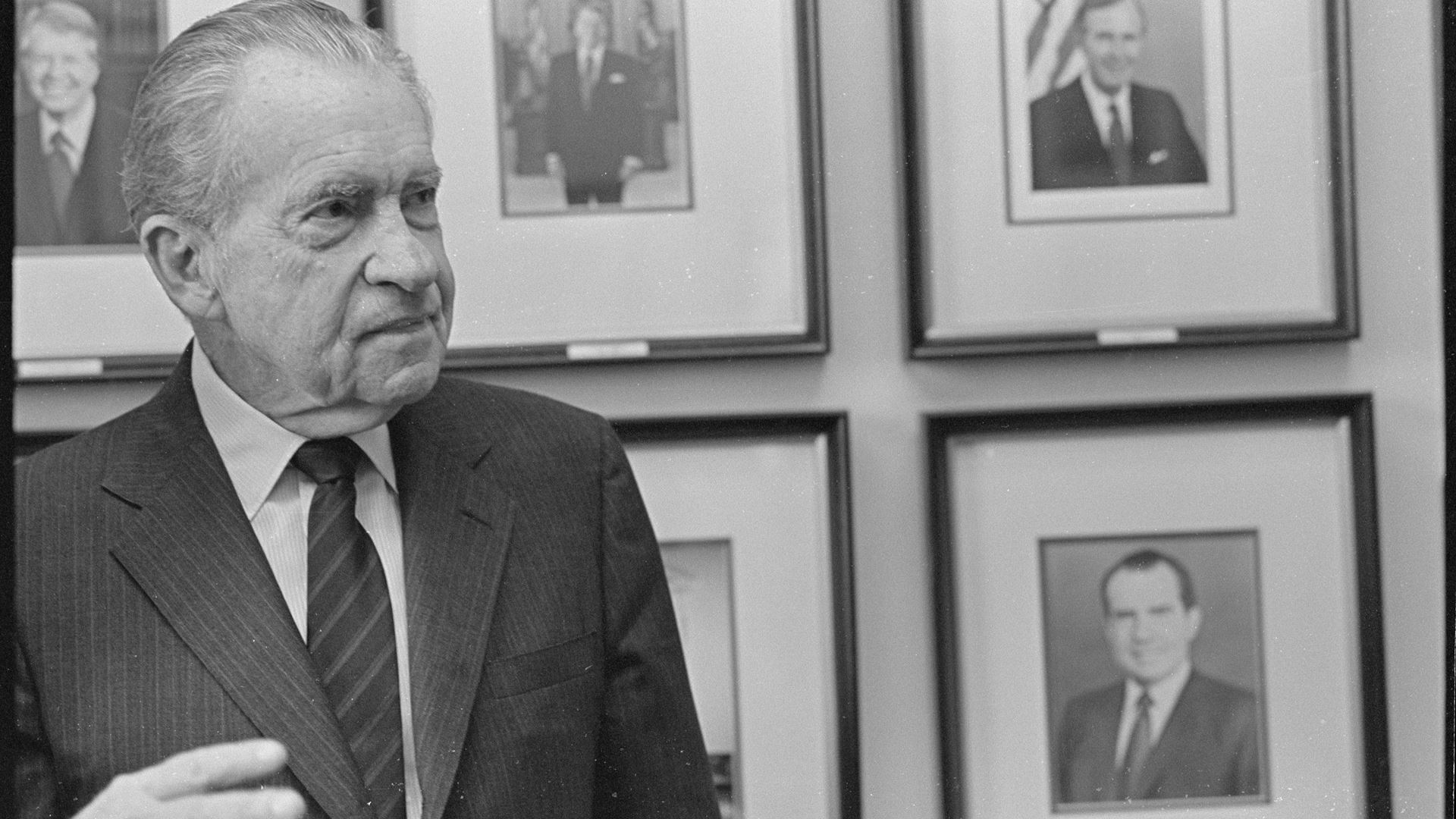Exhibit Marks 50 Years Since Watergate, Highlighting Collections
Library Displays Collections Documenting the Infamous Political Scandal, Hosts Panel and Acquires New Collection from Journalist Leonard Downie Jr.
A new exhibit commemorates the 50th anniversary of the Watergate scandal, exploring the role of the press, Congress, the courts and President Richard Nixon’s administration. The exhibit draws from 24 Library of Congress Manuscript Division collections, several of which were recently acquired or opened, in law, journalism and government.
On view through Sept. 3 in the Great Hall of the Library’s Thomas Jefferson Building, the six-case display tracks the events that unfolded from the initial Watergate break-in at the Democratic National Committee headquarters on June 17, 1972, through the reverberations of the biggest American political scandal of the 20th century.
“I wanted to topple Castro, and unfortunately I toppled the president who was helping us, Richard Nixon,”lamented Eugenio Martinez, a Cuban exile who was one of the five burglars apprehended for breaking into and wiretapping the DNC Headquarters at the Watergate Office Building in Washington, D.C.
Visitors can find a carbon copy of Martinez’s arrest record, handwritten notes documenting the break-in from acting FBI Director L. Patrick Gray III, and more.
Highlights of the Exhibit
The display highlights key participants such as the outspoken Martha Mitchell, whose first harried telephone calls to journalist Helen Thomas served as an early warning of the criminality afflicting the Nixon administration.
Though the print media was slower to acknowledge Watergate, behind initial forays by The Washington Post’s Bob Woodward and Carl Bernstein, the press eventually turned its attention to the scandal. While Woodward and Bernstein remain iconic for their reporting, numerous other journalists contributed in important ways. David Broder and Mary McGrory, both of whom appear in the exhibit, were awarded Pulitzer Prizes for their coverage.
Congress is also represented through the Senate Select Committee and burgeoning impeachment efforts in the House of Representatives. Massachusetts Sen. Edward Brooke, the first African American elected to the Senate after Reconstruction, serves as a notable example. A vital surrogate for Nixon in the 1968 campaign, Brooke emerged as the first Senate Republican to call for Nixon’s resignation in November 1973.
Additional highlights on display include:
- President Nixon’s letter to Elliot Richardson demanding the dismissal of special prosecutor Archibald Cox.
- Correspondence by Mark Felt, also known as the source “Deep Throat,” denying his identity to FBI Director L. Patrick Gray.
- Internal debate by White House counsel Leonard Garment regarding the dismissal of H. R. Haldeman and John Ehrlichman.
- A Supreme Court docket tallying the Court’s vote on the various charges in the constitutionally important case, U.S. v. Nixon.
- Ephemera from the era underscoring the odd mélange of malice and absurdity that defined Watergate.
Panel Marks 50th Anniversary of Break-In
The Library will host a panel of journalists and historians discussing “50 Years of Watergate” on the anniversary of the break-in, Friday, June 17 at 5 p.m. ET, moderated by Washington Post Media Columnist Margaret Sullivan, and featuring former Washington Post Executive Editor Leonard Downie Jr., and historiansRick Perlstein, Leah Wright Rigueur and Dwight Chapin. The event will be livestreamed on the Library’s YouTube channel.
Journalist Leonard Downie Jr. Donates Papers to Library
The former Washington Post Executive Editor Leonard Downie Jr., who was an assistant editor on the Metro desk during Watergate, has recently donated his papers to the Library’s Manuscript Division, joining the collections of other acclaimed journalists. Materials from Downie’s papers are included in the Watergate display.
Downie’s collection spans decades at one of the nation’s premier newspapers, providing a view of the Washington Post’s inner workings. Downie started as an intern at the Post in the 1960s and worked his way up the editing and reporting ranks, including stints as foreign correspondent in London, national editor, managing editor and finally executive editor for nearly two decades from 1991 to 2008.
Researchers will find correspondence and other materials featuring publishers Katharine and Don Graham, legendary editor Ben Bradlee, journalists Robert Kaiser, Meg Greenfield, Woodward and other Post luminaries as well as coverage of events such as Watergate, the Iraq and Afghanistan Wars, the administrations of President Bill Clinton and President George W. Bush, the Valerie Plame Affair, Sept. 11, the Unabomber and much more.
The Library of Congress is the world’s largest library, offering access to the creative record of the United States — and extensive materials from around the world — both on-site and online. It is the main research arm of the U.S. Congress and the home of the U.S. Copyright Office. Explore collections, reference services and other programs and plan a visit at loc.gov; access the official site for U.S. federal legislative information at congress.gov; and register creative works of authorship at copyright.gov.
# # #
Media Contact: Brett Zongker, bzongker@loc.gov
PR 22-052
06/14/2022
ISSN 0731-3527

